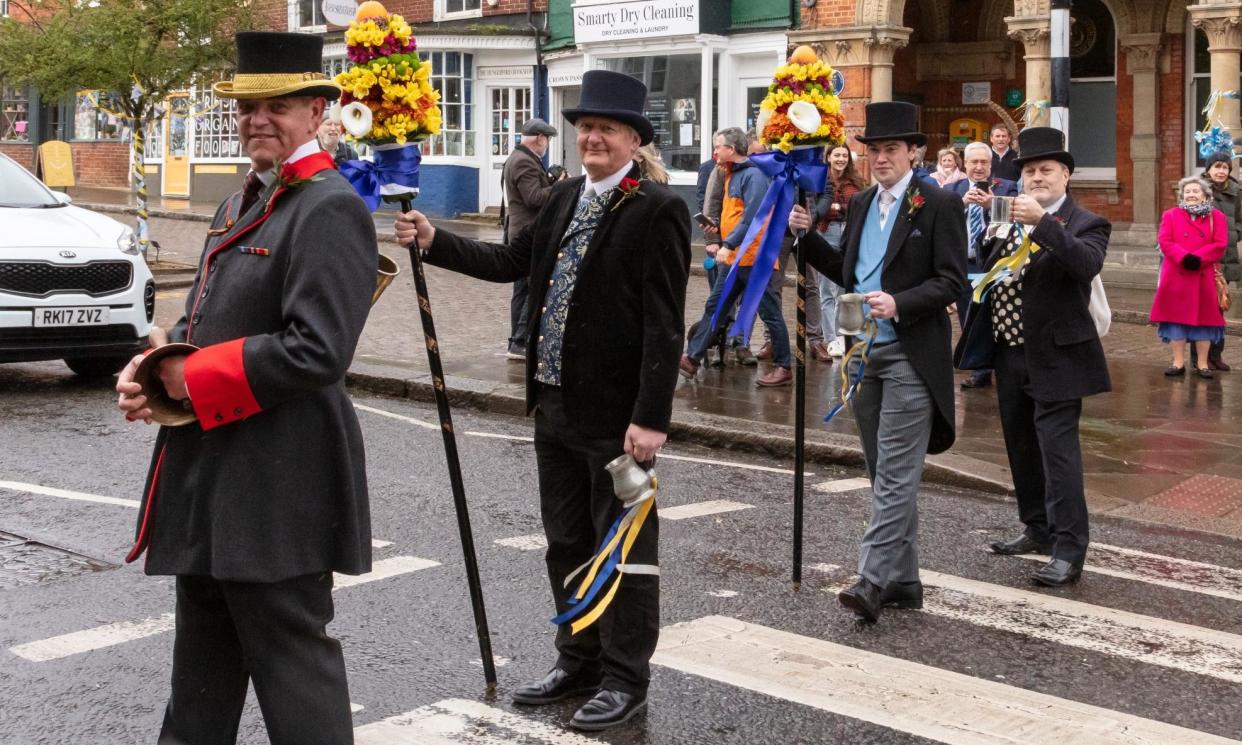Country diary: Ribbons, rituals and common rights – this pageant is now 575 years old

The knobbly pollarded street trees along Hungerford’s broad rural high street are maypoled with ribbons. It’s quietish, as usual. But at intervals, a small crowd in top hats, carrying oranges, baskets and beribboned poles of yellow and blue flowers, emerges from each house and enters another in turn.
The pebbledashed frontage of two cottages conceals the two halves of a medieval cruck house, its pre-chimney beams smoke-blackened: a house that’s witnessed this ceremony each of its 575 years. Each neighbour retains grazing rights on the town’s common, due to the historical tenacity of the people here. This colourful spring pageant – coinciding with the first swift over the rooftops – is Tutti Day, the near-culmination of a fortnight’s Hocktide ceremonies, a celebration and a reaffirmation of the townspeople’s common rights.
At a confluence of chalk streams, this is a commoner’s town, administered since the 14th century by the Town and Manor of Hungerford and the Liberty of Sanden Fee. During the 1850s, townsfolk resisted municipalisation, holding out for 50 years and risking imprisonment, until a town council was established alongside. The “Town and Manor” remains as a community charity, retaining its common-held town hall, corn exchange, pub, common, Freeman’s marsh, river and nature reserves, with a new wetland in the planning.
On Tutti Day itself, Tuttimen (any gender) visit each of the 102 commoners’ houses to collect a token tithe. Once a penny per person, the tithe at some point became a kiss exchanged for an orange – sometimes obtained via a ladder to reach top windows. Drinks are offered at each home, with the Orangeman acting as chaperone, stewarded by others, including secondary-school Tutti girls and boys. At the end of a long boozy day, the Tuttimen are wheelbarrowed back to the pub.
Meanwhile, the Hocktide jury summons all commoners to court in the town hall for a roll call re-establishing fishing and pasture rights. Over the fortnight, there is ale-tasting, a macaroni supper, anchovies on toast and newcomers “shod” by a farrier. Associated Hocktide furniture includes brass horns and a cow stick.
What might seem a folkloric re-enactment is in fact an affirmation of the freedom of open spaces, grazing, fishing rights and a community coffer, as well as a spirit of resistance, taken up by the cows summering on the unfenced common, sampling each car they stop with rough tongues.
• Country diary is on Twitter at @gdncountrydiary

 Yahoo News
Yahoo News 
